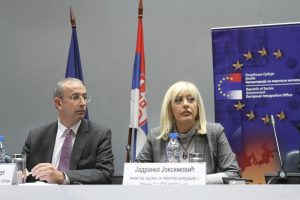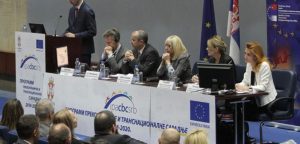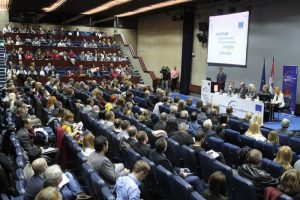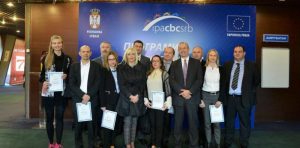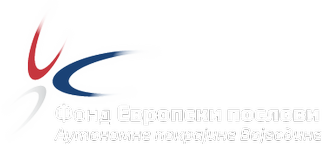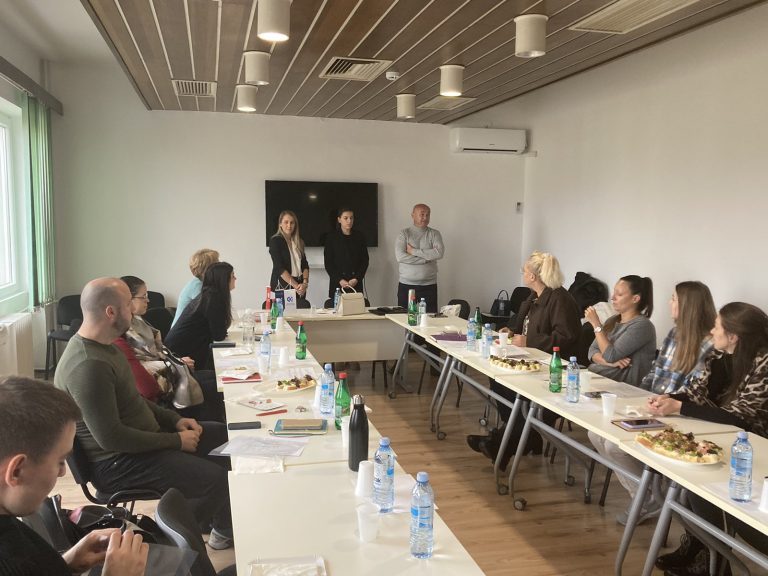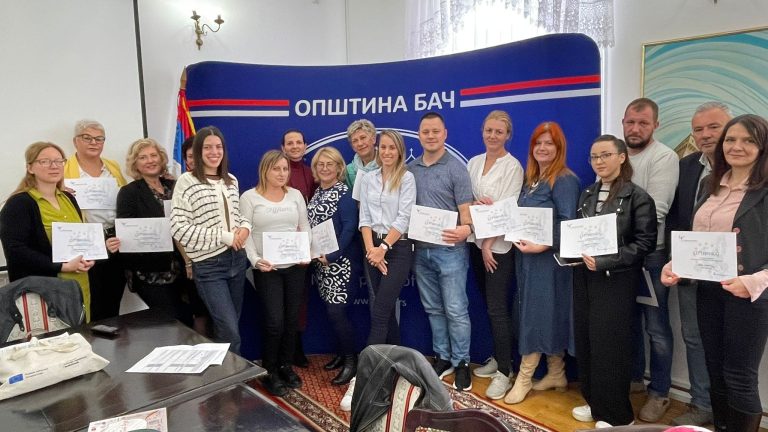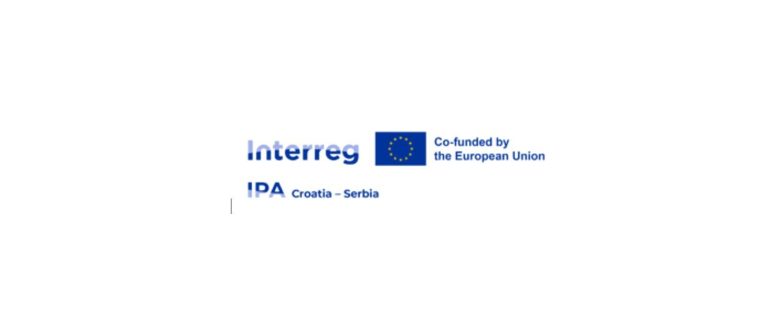SAFE project among the eight best projects of cross-border and transnational cooperation
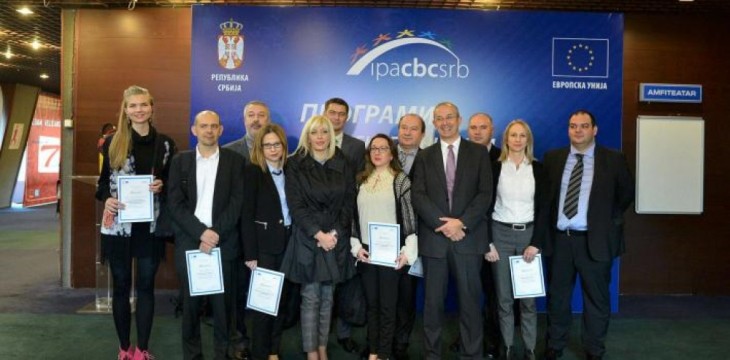
In the framework of the Fifth National Conference on Cross-border Cooperation, which was held in Belgrade on 21 October 2016 and organized by the Office for European Integration of Serbian Government, Jadranka Joksimović, Minister of European Integration, handed the awards for the eight best projects of cross-border and transnational cooperation. Among the awarded projects was the “Support to Allergen-Free Environment – SAFE” project, which was implemented under the Hungary-Serbia IPA CBC Programme 2007-2013, in the cooperation of the European Affairs Fund of AP Vojvodina, Provincial Secretariat for Urban Planning, Construction and Environmental Protection, City of Sombor and Local Self-government Baja.
The other awarded projects were Cross-border development potential as a basis for sustainable development (Serbia – Bulgaria), Archaeological heritage and sites closer to tourists (Serbia – Bulgaria), Implementation of a nature conservation rescue centre and animal health monitoring system with cross-border cooperation (Hungary – Serbia), Joint theatre performance: Comprehensive and coherent focus on people living in the border region (Hungary – Serbia), Health without borders (Romania – Serbia), Improving the capability of the Romanian and Serbian authorities for reacting in emergency situations (Romania – Serbia) and Strengthening the capacities of the Department for Emergency Situations in dealing with UXO and other dangerous agents (Croatia – Serbia, 2007 to 2013).
The conference was opened by Jadranka Joksimović, Minister of European Integration and National IPA Coordinator, Michael Davenport, Head of EU Delegation to Serbia, and Moray Gilland, Head of Unit in the Directorate General for Regional and Urban Policy at the European Commission. At the conference, the ongoing results of cross-border and transnational cooperation programmes carried out in the Republic of Serbia and surrounding countries, as well as the new financial perspectives of the European Union aimed at the cooperation were presented.
Minister Joksimovic said Serbia was engaged in the implementation of the cross-border cooperation programmes with Hungary, Romania, Bulgaria, Croatia, Macedonia and BiH, and underlined the importance of regional cooperation, good neighbourly relations and local development, and the best way to achieve those things was to work with those who had already learnt those lessons in the process of EU integration. As examples of good use of these funds, she mentioned Hungary, Poland, Slovakia, noting that, in this way, these countries are developing their inner strength and economy. Minister Joksimović urged local self-governments to conduct a solid methodological assessment, comprehend actual needs and participate in EU projects, pointing out that Serbia has been approved more than EUR 254 million for the implementation of these projects over the course of 2014 − 2020.
Head of the EU Delegation to Serbia Michael Davenport said that since 2004, 500 entities were given grants worth EUR 90 million in total for 800 projects whose results were from the reconstruction of schools, cultural institutions, sports courts, the support provided to emerging entrepreneurs and the establishment of business incubators to the promotion of tourism and flood prevention assistance and added that those projects were directly beneficial to everyday lives of residents of border regions. Also, these projects have encouraged people, organisations and municipalities on both sides of the border to think, plan and act together which in itself was a major success.
In previous two years, he recalled, the EU Delegation and the Serbian European Integration Office have opened two calls for proposals within Serbia-Croatia and Serbia-BiH cross-border cooperation programme worth EUR 3.6 million each. EU Ambassador also announced that the process of contracting and funding of eight major projects dealing with flood prevention in Vojvodina and West Serbia is about to finish and these projects will commence in late November 2016 at the latest.
Davenport reminded that Serbia received grants for the aftermath of 2014 floods to the tune of EUR 170 million.
Serbian European Integration Office said that by 2020, Serbia would have had more than EUR 254 million at its disposal to implement six cross-border programmes and two programmes of trans-national cooperation.
The Serbia-Montenegro cross-border cooperation programme will be funded with EUR 8.4 million, Hungary-Serbia programme will receive EUR 65.1, Romania-Serbia EUR 74.9 million, EUR 28.9 million will be allocated to Bulgaria-Serbia CBC programme, whereas Croatia-Serbia programme will be earmarked with EUR 34.2 million. When it comes to programmes of trans-national cooperation, EUR 15.7 million and EUR 19.8 million will be allocated for Adriatic-Ionian and the Danube programmes, respectively.
The event was attended by more than 300 representatives of the institutions of the Government of the Republic of Serbia, the European Union, regional and local governments, academic and professional community, the media, civil society, as well as the beneficiaries and potential beneficiaries of the Programme.
